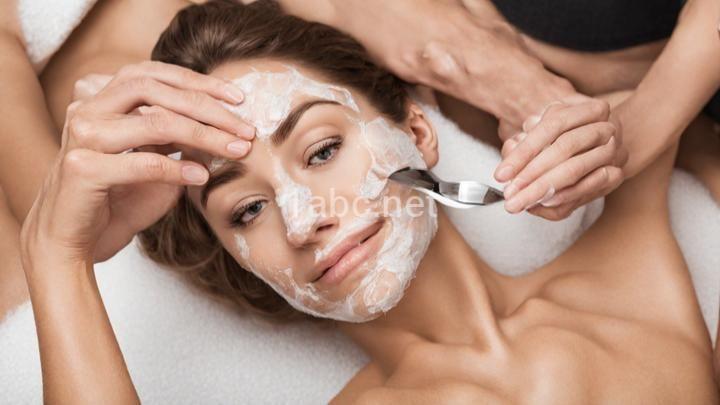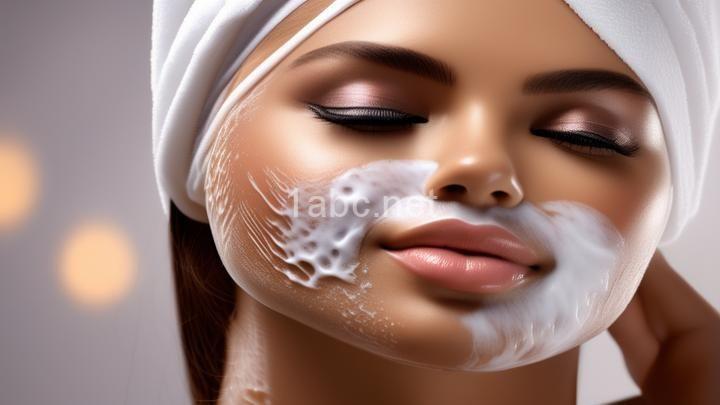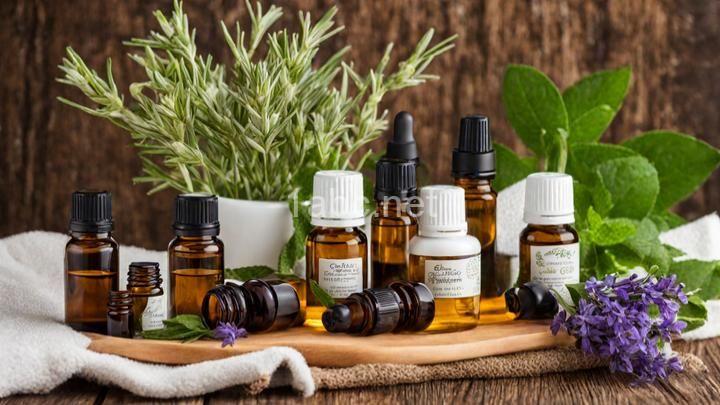Exfoliation Myths Debunked: Separating Fact from Fiction
Introduction:
I. Myth #1: Exfoliating Daily is Necessary
II. Myth #2: Scrubs with Harsh Ingredients are More Effective
III. Myth #3: Exfoliating Will Make Your Skin Thinner
IV. Myth #4: Exfoliating Can Eliminate Wrinkles and Acne Scars Completely
V. Myth #5: Exfoliating Any Part of Your Body is the Same
Conclusion:

Introduction:
Hello, lovely readers! Welcome to another exciting blog post where we dive deep into the world of skincare. Today, we are going to tackle a topic that has caused quite a buzz in the beauty community – exfoliation. We all know that exfoliating our skin is an essential step in our skincare routine, but there are so many myths surrounding this practice that it's time to separate fact from fiction. So, grab a cup of tea, sit back, and let's debunk some exfoliation myths!
I. Myth #1: Exfoliating Daily is Necessary
Raise your hand if you've heard the advice to exfoliate your skin every day. Many people believe that daily exfoliation is necessary to achieve a glowing complexion. However, the truth is that excessive exfoliation can actually harm your skin rather than improve it.
When we exfoliate, we remove the outer layer of dead skin cells, allowing fresh and healthy skin to shine through. But if we overdo it, we can strip away the protective barrier of our skin, leading to dryness, irritation, and even breakouts. That's the last thing we want, right?
So, how often should you exfoliate? Well, it depends on your skin type. If you have sensitive or dry skin, exfoliating once or twice a week should be enough. If you have oily or acne-prone skin, you can exfoliate up to three times a week. Remember, it's all about finding the right balance for your skin.
II. Myth #2: Scrubs with Harsh Ingredients are More Effective
Have you ever believed that the rougher the scrub, the better the results? Well, you're not alone. Many people think that using scrubs with harsh ingredients will give them a deeper exfoliation. However, this belief couldn't be further from the truth.
Using scrubs with abrasive ingredients can cause micro-tears in your skin, leading to inflammation and sensitivity. Instead of achieving a smooth and radiant complexion, you could end up with redness and irritation. Yikes! That's not the goal, is it?
The good news is that there are gentler alternatives to harsh scrubs. Chemical exfoliants, such as AHAs (alpha hydroxy acids) and BHAs (beta hydroxy acids), can effectively exfoliate your skin without the risk of physical damage. Additionally, there are mild physical scrubs available that use gentle particles like rice bran or jojoba beads to slough away dead skin cells. So, say goodbye to harsh scrubs and hello to a more gentle and effective exfoliation experience!
III. Myth #3: Exfoliating Will Make Your Skin Thinner
Here's a common misconception: exfoliating will make your skin thinner. It's easy to understand why some people believe this myth. After all, exfoliation involves removing the outer layer of dead skin cells, so it's natural to think that it would result in thinner skin. But fear not, because the truth is quite the opposite.
Exfoliation actually promotes cell turnover, which means that it stimulates the production of new skin cells. Over time, this process leads to improved skin thickness and texture. So, rather than making your skin thinner, exfoliation helps it become healthier and more resilient.
Now, it's important to choose suitable products for safe and effective exfoliation. Opt for exfoliants with lower concentrations of active ingredients if you have sensitive skin. And always remember to follow the instructions provided by the product manufacturer.
IV. Myth #4: Exfoliating Can Eliminate Wrinkles and Acne Scars Completely
Ah, if only exfoliating could magically make our wrinkles and acne scars disappear completely. Unfortunately, this is one of the most unrealistic expectations associated with exfoliation.
While exfoliation can indeed improve the appearance of wrinkles and acne scars, it's important to understand that it's not a cure-all solution. Exfoliating helps to stimulate cell turnover and promote collagen production, which can lead to smoother and more even-toned skin. However, for more significant results, it's best to combine exfoliation with other treatments, such as retinoids, vitamin C serums, or professional procedures like chemical peels or microdermabrasion.
If you're struggling with persistent wrinkles or acne scars, it's always a good idea to seek professional advice. A dermatologist can recommend the most suitable treatments for your specific concerns and guide you towards achieving the best results.
V. Myth #5: Exfoliating Any Part of Your Body is the Same
Last but not least, let's address the misconception that exfoliating any part of your body is the same. The truth is, different areas of our body require specific types of exfoliation.
Facial skin is more sensitive compared to areas like elbows or feet, so it's important to tailor our exfoliation approach accordingly. Use milder exfoliants with smaller particles for your face, and reserve stronger exfoliants or tools like body brushes for rougher areas.
When choosing exfoliating products, look for those specifically formulated for different body parts. There are facial scrubs, body scrubs, and even foot scrubs available in the market. Don't forget to read the product labels and follow the instructions to ensure a safe and effective exfoliation experience.
Conclusion:
We've debunked some common exfoliation myths, and now it's time to summarize the key takeaways. Remember, exfoliating daily is not necessary and can harm your skin. Harsh scrubs may cause more harm than good, so opt for gentler alternatives. Exfoliation does not make your skin thinner; it actually promotes skin thickness and health. Don't expect exfoliation to eliminate wrinkles and acne scars completely; combine it with other treatments for the best results. Lastly, different body parts require different exfoliation approaches, so choose appropriate products accordingly.
Now that you're armed with the facts, approach exfoliation with knowledge and caution. Listen to your skin, observe the results, and adjust your routine accordingly. And as always, feel free to share your experiences or ask any questions in the comments section below. Happy exfoliating!
FREQUENTLY ASKED QUESTIONS
What is exfoliation?
Exfoliation is the process of removing dead skin cells from the surface of the skin. It helps to unclog pores, improve skin texture, and promote a brighter complexion. Exfoliation can be done using physical or chemical exfoliants. Physical exfoliants include scrubs, brushes, or exfoliating gloves, while chemical exfoliants usually contain acids that dissolve dead skin cells. It is important to exfoliate gently and not overdo it to avoid irritating the skin. Exfoliating regularly can contribute to a healthier and smoother skin appearance.
Why is exfoliation important for skincare?
Exfoliation is important for skincare because it helps to remove dead skin cells from the surface of your skin. This process helps to unclog pores, prevent breakouts, and promote a smoother, brighter complexion. Additionally, exfoliation can increase the effectiveness of other skincare products, allowing them to penetrate deeper into the skin. It is important to note that exfoliation should be done in moderation and with gentle products to avoid irritation or damage to the skin.
How often should I exfoliate?
The frequency of exfoliation depends on your skin type and the type of exfoliation method you are using. Generally, it is recommended to exfoliate 1-3 times a week. However, if you have sensitive or dry skin, you may want to limit exfoliation to once a week to avoid over-exfoliation. It is important to pay attention to your skin's reaction and adjust the frequency accordingly.
Can I exfoliate every day?
While exfoliating can help to remove dead skin cells and promote a more radiant complexion, doing it every day may not be suitable for everyone. The frequency of exfoliation depends on your skin type and sensitivity. Over-exfoliating can lead to skin irritation, redness, or dryness. It's generally recommended to exfoliate 2-3 times per week, but it's best to consult with a dermatologist or skincare professional to determine the frequency that is best for your skin.


